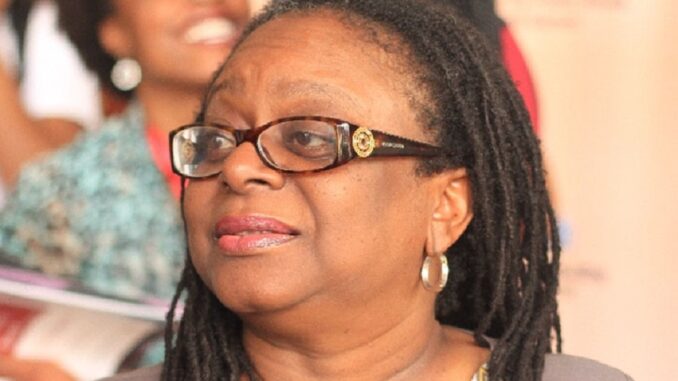
The Lagos Chamber of Commerce and Industry (LCCI) forecasts that Nigeria’s economy will end its current growth rate for the year at 2.5%.
This was disclosed by Mrs Toki Mabogunje, President, LCCI, at the 133rd Annual General Meeting (AGM) of the chamber on Thursday in Lagos, according to the News Agency of Nigeria.
The LCCI chief urged that Nigeria’s fiscal and monetary sides of the economy should promote growth-enhancing and confidence-building policies that would encourage private capital flows to the economy to achieve the growth, and also a medium-term recovery plan anchored on local productivity, ease of business, attracting private investment, and developing physical and soft infrastructure.
What the LCCI boss is saying
Mabogunje revealed that Nigeria’s inflation would be sustained at its double-digit level in the short to medium term due to persistent food supply shocks, foreign exchange illiquidity, higher energy cost, potential removal of fuel subsidy, insecurity and social unrest in the Northern region.
“These structural factors will continue to mount pressure on domestic consumer prices,” she said.
She added that despite the non-oil economy growth by 5.4 per cent, insecurity challenges in some parts of the country may cause production to shrink and supply chain to be disrupted.
“Key drivers of the non-oil sector growth were finance and insurance with 23.2 per cent, transport and storage 20.6 per cent, trade with 11.9 per cent, telecommunications 10.9 per cent.
“Others are manufacturing 4.3 per cent, construction 4.1 per cent, real estate 2.3 per cent as well as agriculture 1.2 per cent all year round.
“However, with the worsening security perception about the country, foreign investors are not interested in bringing in Foreign Direct Investments to Nigeria,” Mabogunje said.
On the decision of the Monetary Policy Committee of the Central Bank of Nigeria to retain policy parameters, she said that while the CBN has been keen to extend credit to the real economy as a way of supporting the economy, the fact remains that credit provision in recent times has proved ineffective in boosting output growth and stabilising consumer prices.
“This is given the weak pass-through effect of traditional monetary policy instruments on the broader economy.
“A broad-based combination of fiscal and monetary policies is imperative to achieving the twin objective of economic growth and price stability.
“Looking forward, factors such as oil prices, oil production, output growth, inflation, foreign exchange stability, foreign capital inflows, credit to the private sector are expected to influence monetary policy.
“These decisions are decisions in the short to medium term.
“On the fiscal side, we expect to see clear communications and actions on the proposed fuel subsidy removal and how this will ease government’s revenue and boost investment in infrastructure,” she said
What you should know
Nigeria’s real GDP grew by 4.03% in the third quarter of the year, indicating an average growth rate of 3.28% so far in the year, largely driven by growth in the non-oil sector of the economy, which grew by 5.44% in Q3 2021. On the other hand, the oil sector contracted by 10.73% year-on-year, due to the decline in crude oil production.
Nairametrics recently reported that according to Fitch Solutions, Nigeria’s economy is expected to grow by 2.8% in 2022 on the back of stronger household spending and an increase in crude oil export value.


Be the first to comment